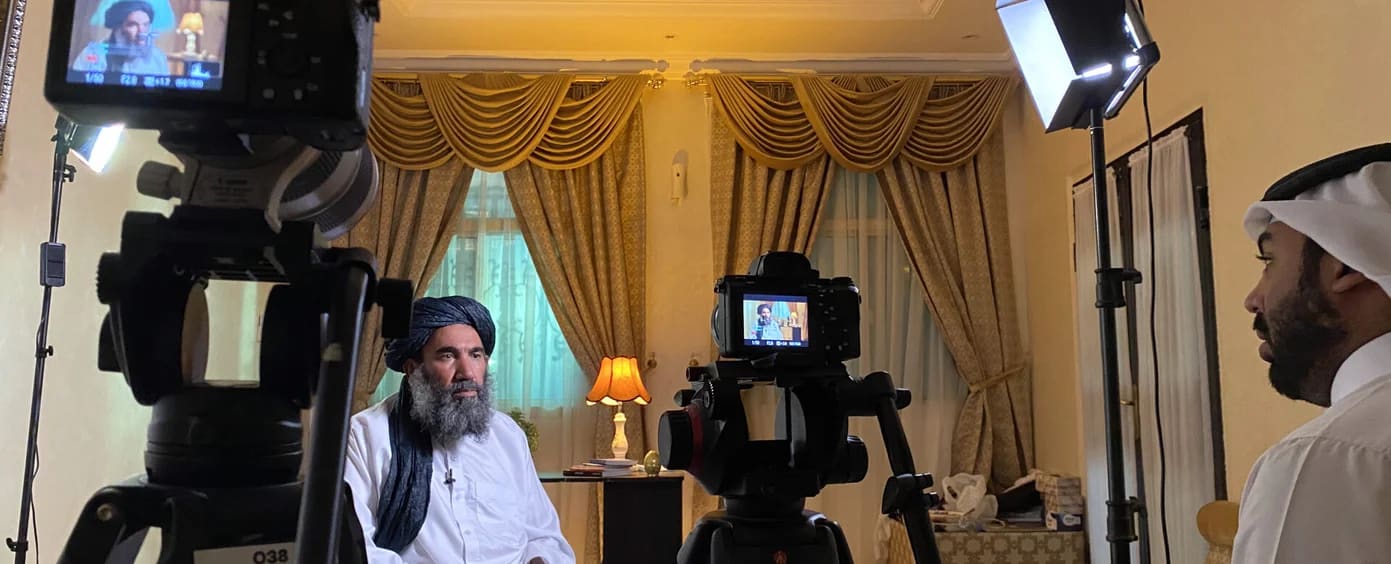My Life with the Taliban: Insights into Afghanistan’s Reality Since the Late 1970s | Memoirs of Mullah Abdul Salam Zaeef
The documentary My Life with the Taliban presents the personal journey of Mullah Abdul Salam Zaeef, one of the founding members of the Taliban and the movement’s former ambassador to Pakistan. The film offers a historical account of modern Afghanistan from the late 1970s onward, drawing heavily on Zaeef’s personal memoirs. It sheds light on the ideological and political shifts that shaped the country, from the spread of communist influence and political dominance to the rise of Islamic resistance in response.
At its core, the documentary seeks to explore the roots of the Taliban’s emergence and the underlying conflicts in Afghanistan through firsthand experiences and personal testimonies. This inside perspective provides viewers with a deeper understanding of the pivotal events that have shaped the nation’s modern history.
The film primarily relies on Zaeef’s own testimony, both narrated in his voice and written in his words. It delves into key historical moments, offering insights into the ideological and political motivations behind the formation of the Taliban. According to Zaeef, the movement arose as a response to the failure of warring factions to establish a stable state after the Soviet withdrawal, as well as widespread frustration over corruption among Afghan leaders at the time.
Additionally, the documentary highlights the influence of foreign powers on Afghanistan’s trajectory—examining the Soviet role in fueling war throughout the 1980s, the U.S. intervention that led to the fall of the Taliban regime, and Pakistan’s shifting stance, from supporting the Mujahideen and Taliban at certain points to turning against them when Zaeef was arrested and handed over.
The film also underscores the immense human cost of decades of conflict, portraying the devastation of infrastructure, the toll of war casualties, and the waves of displacement that have defined Afghanistan’s recent past. These hardships are woven throughout Zaeef’s narrative, providing an emotional backdrop to the country’s suffering.
Beyond historical events, the documentary offers a glimpse into Mullah Zaeef’s personality. He is depicted as a man of deep faith and quiet resolve, demonstrated through his endurance during hardships. For instance, he views his imprisonment as a spiritual test—one that ultimately strengthened his convictions and commitment to his beliefs.
Ultimately, the film emphasizes the importance of understanding Afghanistan’s history from an internal perspective rather than relying solely on external narratives. My Life with the Taliban gives a voice to an Afghan who experienced these events firsthand, making it a valuable historical account. Rather than merely recounting facts, the documentary interprets them through the lens of those who lived them, bringing to light aspects that are often overlooked in mainstream narratives.
With this comprehensive approach, the film successfully paints a vivid picture of Afghanistan’s turbulent journey over the decades—exploring how the Taliban emerged and why the country’s situation evolved as it did, all through the testimony of someone who lived through it in its entirety.
